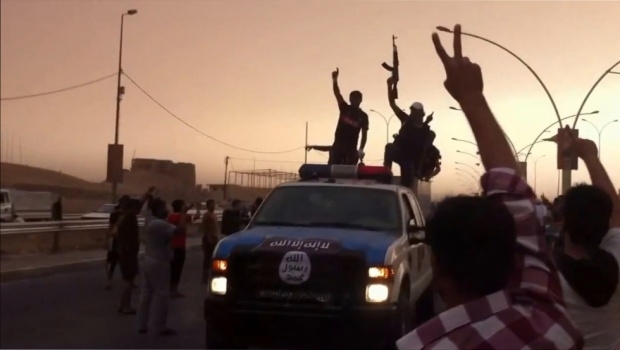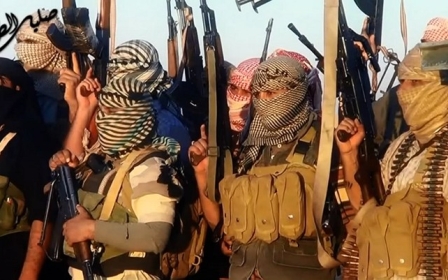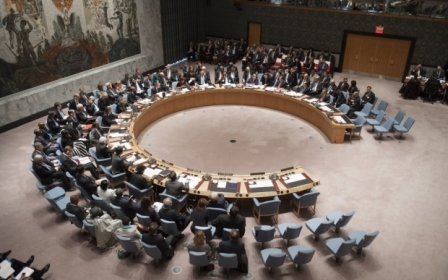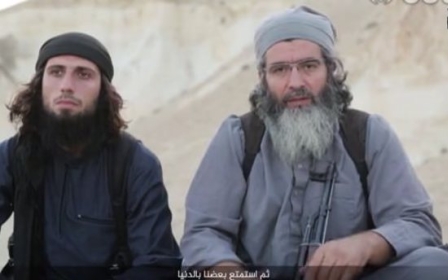ANALYSIS: A flawed US approach to countering IS financing?

Military efforts to dislodge the Islamic State (IS) group from its strongholds in Syria and Iraq have not yet had the desired effect, in part due to the lack of a coordinated policy by regional and global actors.
The other major strategy to weaken IS, financial warfare, has been described as “pathetic” despite numerous international efforts, ncluding UN Security Council resolutions, an extensive report by the OECD's Financial Action Task Force (FATF), the Manama Declaration on combating the financing of extremism, the establishment of the Counter-ISIL Finance Group in Rome and pressure from the United States.
Financial crime experts attribute the failure to curb the rise of IS to policy initiatives and the “stalled war on terrorism financing”.
Policy rethink
Following 9/11, the US pushed initiatives to counter the financing of terrorism (CFT) to the forefront of its “war on terror,” expanding the role of the US Treasury to “follow the money,” primarily targeting al-Qaeda financiers. To do so, the US went on a global offensive hand-in-hand with FATF to force states to adopt anti-money laundering (AML) and CFT legislation - FATF's 40+9 recommendations.
This approach was described by the first-ever assistant secretary of the US Treasury for terrorist financing and financial crimes, Juan Zarate, in his 2013 book, as Treasury's War: The Unleashing of a New Era of Financial Warfare.
But in the years since 9/11 and the global rollout of money laundering and counter-terrorism financing regimes, former Treasury officials and others in the financial compliance sector increasingly recognise that approaches to CFT need to be amended to be more effective.
“The reason we have these FATF guidelines is to help countries put AML/CFT protocols in place, but the bottom line is to arrest launderers and identify them, the same with terrorism financiers. But if you look at the numbers, with a few exceptions, it's been spectacularly unsuccessful,” said John Cassara, a former US Treasury special agent.
“These issues are not new, it’s what I called in 2005 'the stalled war on terror finance,'” he said.
This "stalled war" extends to FATF's recommendations, with regulatory adoption and haphazard enforcement around much of the world. This includes the Middle East and North Africa (MENA), which ranks low globally in adoption and enforcement of AML and CFT standards. Iraq, for instance, is ranked sixth from the bottom in the 2014 Basel AML Index, ranked 157th out of 162 jurisdictions, while Yemen is 146 and Lebanon 129. In December 2014, FATF identified Algeria, Iraq, Kuwait, Syria and Yemen as jurisdictions with “strategic AML/CFT deficiencies”.
“The international system is as strong as its weakest link, and it's the first mile that's the weakest part and where the real vulnerability lies,” said Tom Keatinge, director of the Centre for Financial Crime and Security Studies at RUSI, in relation to curbing IS financing.
“The Manama meeting [in November 2014 that brought together regional and international actors to combat extremist financing] was an excellent way of saying we're doing something, but I've not noticed any changes.”
Aware of global deficiencies, the Brussels-based FATF is starting to amend its approach, moving this past year from country evaluation reports on whether jurisdictions have the right regulations in place or not, to reports based on actual implementation and enforcement. A new report on IS is being drawn up, to be published in October, while a methodology rethink is in the cards. There has also been a greater outreach by regulators with the private sector to ensure the right policies are in place.
Addressing deficiencies
The struggle has been to better regulate and prevent the abuse by militant organisations of alternative remittance systems such as hawala, trade-based money laundering, human trafficking, non-profit organisations (NPOs) and the smuggling of archaeological artifacts, all of which are being used by IS.
It is only over the past few years that methodologies have been drawn up to better tackle these issues, with FATF including human trafficking in its revised recommendations in 2012, and just over the past year addressing NPOs with greater urgency, in part due to the conflict in Syria. Methodologies to better tackle militant groups’ financing derived from archaeological artifacts has also not been a priority.
“Hawala is rampant in Iraq, Syria, and in other parts of the area. We've been unsuccessful in the MENA, the US, the UK and most of the world in addressing hawala and similar types of underground systems. We've also been unsuccessful in trade-based money laundering, a weak link in enforcement,” said Cassara.
Addressing money laundering and counter-terrorism financing deficiencies goes to the heart of countering IS's financial capabilities.
“The Islamic State is operating a war-zone economy, which includes extortion, oil sales, kidnapping for ransom and so on,” added Cassara.
“There is really no way to stop that unless they're dislodged from their operations, but nobody wants to do that. So we can target individual banks in Iraq and Syria, and problematic banks in the MENA, but you've got problems in the right types of intelligence and coordination, and from enforcement. It happens time and again … When you identify one bank or branch and get the international community to move on it, the bad guys find another outlet. It's like whack-a-mole.”
No strategy?
To Professor Jimmy Gurule, Professor of Law at Notre Dame University in Indiana, and a former Under Secretary of the US Treasury, it goes beyond such issues to the strategy itself against IS.
“Look at the CFT response, it is pathetic. Why is that? Do they think it's not important? Is the strategy a military response, to target oil facilities and supply routes from Syria to Turkey? It is so ironic as IS is the wealthiest terrorist organisation in the world, with money al-Qaeda could only dream of,” Gurule said.
To the US Treasury, FATF and other regulatory bodies, IS is considered operationally different from other extremist organisations. As a FATF spokesperson said following the body's report “Financing of the Terrorist Organisation Islamic State in Iraq and the Levant” in February, “ISIL as a threat represents a new form of terrorism where financing is crucial to its operations. It should be noted that a number of traditional countermeasures to terrorism financing are not applicable to this new model.”
But how different is IS from other organisations? Compared to US-designated “terrorist” organisations there is no state sponsor as for Hamas and Hezbollah, and IS does not match the model of the Taliban, FARC or the Tamil Tigers (LTTE).
“It doesn't really fit these models as IS controls territory. It is kind of a hybrid, with multiple sources of income,” said Cassara.
The implication is that the international community is essentially hamstrung in its efforts to financially undermine IS in areas it controls, unable to have an impact other than via military strikes because IS is acting more like a state than a non-state actor.
“There's not a lot that can be done about that [at the local level]. Yes, IS is not like any group seen before but on the other hand that's not necessarily right - we had the PLO, the Taliban, and other groups running economies that were difficult to disrupt unless struck from a physical perspective,” said Keatinge.
Misguided
To Gurule, the strategy against IS is failing for a number of reasons, primarily because it is not being treated as a state. “I think the effort is largely misguided, as Treasury and FATF doesn't get it. The fundamental distinction between al-Qaeda and other affiliates is IS is state-like, it is a de-facto state, and its funding is primarily domestic, while groups like al-Qaeda principally got money from external sources,” he said.
Such a distinction is important, as the methodological model being used to go after IS is based on that used against al-Qaeda, which was implemented in the early 2000s.
“That is what I'd call CFT Strategy 1.0, which I helped put in place when under secretary from 2001-3, focusing on al-Qaeda, but that is not the right strategy to focus on IS. There is a fundamental difference, but it appears the regulators and FATF are not fully understanding that,” said Gurule.
While tracking money going to IS needs to be kept on the radar and curbed, Gurule thinks that the focus should be on the cash going out to acquire weapons and supplies, thereby undermining its operational capabilities as a state-like actor.
“The focus should be on money going out. Who is IS sending money to? Transfers from Iraq and Syria, to whom? It is very complex because it is state-like, not just another terrorist organisation, and we need a system and strategy to deal with that,” he said.
New MEE newsletter: Jerusalem Dispatch
Sign up to get the latest insights and analysis on Israel-Palestine, alongside Turkey Unpacked and other MEE newsletters
Middle East Eye delivers independent and unrivalled coverage and analysis of the Middle East, North Africa and beyond. To learn more about republishing this content and the associated fees, please fill out this form. More about MEE can be found here.




